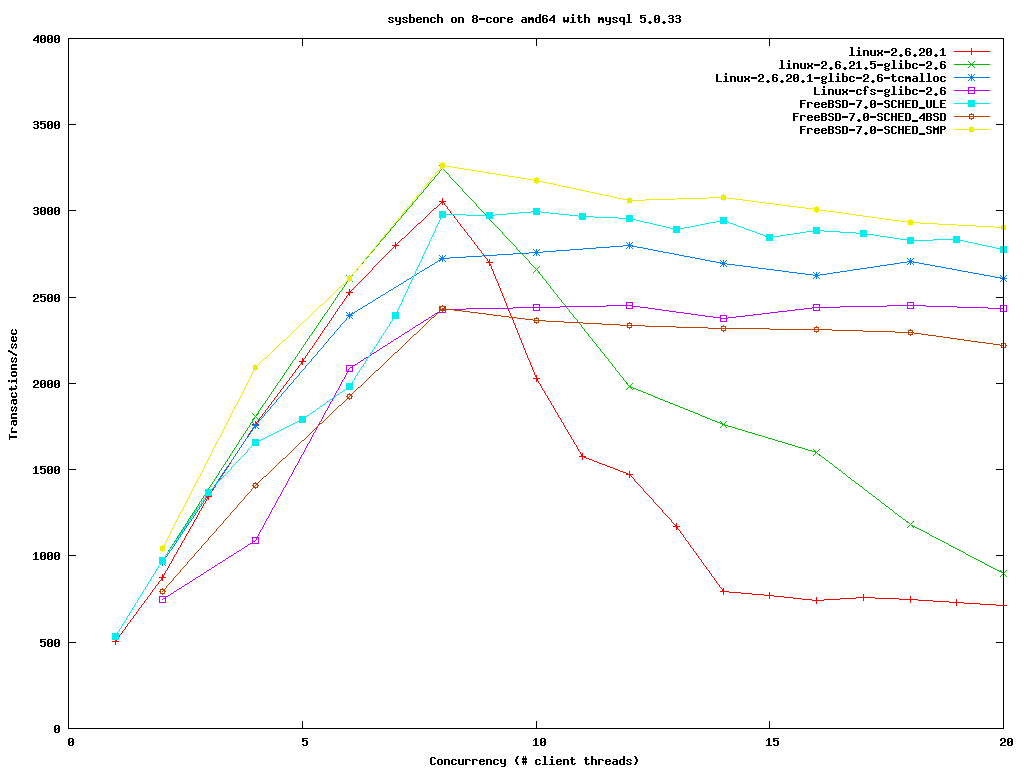Originally posted by clau
View Post
http://people.freebsd.org/~kris/scaling/os-mysql.png
If 2.6.22 was tested here and there (also in benchmark I posted) I wonder what they base on saying some scaling problems were fixed in 2.6.22?

Ok, now I know:
There's gnu's malloc used and that's why 2.6.21* drops down.
And with Google's malloc:
http://ozlabs.org/~anton/linux/sysbench/
Seriously, it seems a fair test to me, though it's rather old and many things might have changed in both OSes. According to the link you posted 2.6.25 was already much improved.





Leave a comment: